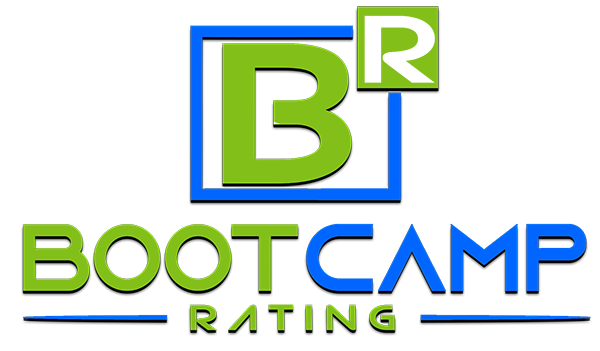Coding bootcamps are intensive training programs designed to teach programming skills in a short period, typically ranging from a few weeks to several months. These bootcamps focus on practical, hands-on learning and aim to prepare students for real-world coding challenges. They cover a variety of programming languages and technologies, making them versatile learning platforms for aspiring developers.
The Structure of Coding Bootcamps
Coding bootcamps are structured to provide an immersive learning experience. This often involves a combination of lectures, coding exercises, and project-based work. Students are usually expected to commit full-time to the program, although part-time options are available for those balancing other commitments. This structure is designed to emulate the fast-paced environment of the tech industry, preparing students for the demands of a professional coding role.
Curriculum and Focus Areas
Bootcamps typically offer a curriculum that covers key programming languages and frameworks such as JavaScript, Python, Ruby, and React. Some bootcamps also offer specialized tracks in areas like data science, cybersecurity, or UX/UI design. By focusing on in-demand skills, bootcamps aim to make their graduates highly attractive to potential employers. The curriculum is regularly updated to reflect the latest industry trends and technologies.
The Rise of Coding Bootcamps
In recent years, coding bootcamps have become increasingly popular as more people look to transition into tech careers. The job market’s growing demand for software developers, data scientists, and other tech professionals has fueled this trend. Coding bootcamps offer a faster and more affordable alternative to traditional college degrees, making them an attractive option for career changers and those seeking to upskill.
The Demographics of Bootcamp Students
Coding bootcamps attract a diverse range of students, from recent college graduates to experienced professionals looking to switch careers. Many bootcamp students are individuals seeking a more direct path into the tech industry without the time and financial investment of a four-year degree. This diversity enriches the learning environment, allowing students to learn from each other’s varied experiences and perspectives.
The Role of Bootcamps in Career Transitions
For many individuals, bootcamps have become a pivotal stepping stone in their career transitions. By offering targeted, intensive training, bootcamps enable students to pivot into tech roles more swiftly than traditional educational routes. This is particularly appealing in a job market where tech skills are in high demand, and employers are eager to fill positions quickly.
Benefits of Coding Bootcamps
Coding bootcamps provide several advantages over traditional educational paths. Here are some key benefits:
Accelerated Learning
Bootcamps condense years of learning into a few months, allowing students to gain valuable skills quickly. This fast-paced environment can be challenging, but it ensures that students are job-ready in a short time. The condensed timeline also makes bootcamps an attractive option for those eager to enter the workforce rapidly or pivot into a new career path without the extensive commitment of a degree program.
Hands-On Experience
Coding bootcamps emphasize practical, project-based learning. Students work on real-world projects, which helps them build a portfolio and gain experience that is highly valued by employers. This hands-on approach ensures that students are not just learning theory but are also applying their knowledge in practical scenarios, thus bridging the gap between education and employment.
Networking Opportunities
Bootcamps often have connections with tech companies and industry professionals. This network can provide students with job placement assistance and valuable industry insights. Many bootcamps host events, guest lectures, and hackathons, offering students the chance to interact with potential employers and industry leaders, thus expanding their professional network.
Flexibility and Accessibility
With the rise of online coding bootcamps, learning to code has never been more accessible. Students can attend classes from anywhere in the world, and many programs offer flexible schedules to accommodate different lifestyles. This flexibility is crucial for students who are working, have family commitments, or prefer a self-paced learning environment. Online platforms also enable bootcamps to reach a global audience, providing opportunities for students in regions where tech education is less accessible.
Challenges Facing Coding Bootcamps
Despite their popularity, coding bootcamps face several challenges in a changing job market. Understanding these challenges can help prospective students make informed decisions about their education.
Market Saturation
As more bootcamps enter the market, it becomes increasingly competitive. Some programs may struggle to differentiate themselves and maintain high-quality instruction. This saturation can lead to variability in program quality, making it essential for students to conduct thorough research and choose bootcamps with strong reputations and proven track records. It’s also important for bootcamps to innovate continuously to stand out in a crowded field.
Quality Assurance
Not all bootcamps are created equal. Some may not provide the depth of knowledge or support that students need to succeed. It’s crucial for students to evaluate the curriculum, instructor qualifications, and student outcomes before enrolling. This due diligence ensures that students invest in a program that will truly prepare them for their desired career path.
Keeping Up with Industry Trends
The tech industry is constantly evolving, and bootcamps must adapt to stay relevant. Programs that fail to update their curriculum risk leaving students unprepared for the job market. Staying current with industry trends involves not only updating technical skills but also integrating emerging technologies and methodologies into the curriculum. Bootcamps that foster partnerships with tech companies can gain insights into industry needs and adjust their programs accordingly.
The Future of Coding Bootcamps
The future of coding bootcamps looks promising, with several trends shaping their evolution.
Increased Collaboration with Employers
As the job market continues to change, coding bootcamps are likely to collaborate more closely with employers to ensure their curriculum aligns with industry needs. This collaboration can lead to better job placement rates and more tailored learning experiences for students. Bootcamps might offer internships or co-op programs, providing students with valuable on-the-job experience while meeting employers’ demand for skilled workers.
Expansion of Online Learning
The COVID-19 pandemic accelerated the adoption of online learning, and this trend is expected to continue. Online coding bootcamps will likely expand their offerings, providing even more flexibility and accessibility for students worldwide. The digital format allows bootcamps to leverage advanced technologies like AI-driven learning assistants and virtual reality environments to enhance the educational experience.
Emphasis on Soft Skills
While technical skills are crucial, employers also value soft skills such as communication, teamwork, and problem-solving. Future coding bootcamps may place a greater emphasis on developing these skills alongside technical expertise. Programs might integrate modules on leadership, emotional intelligence, and creative thinking, ensuring that graduates are well-rounded candidates capable of thriving in collaborative and dynamic work environments.
Focus on Diversity and Inclusion
The tech industry has long struggled with diversity and inclusion. Coding bootcamps can play a role in addressing this issue by actively recruiting underrepresented groups and creating inclusive learning environments. Initiatives such as scholarships for minority students, partnerships with diversity-focused organizations, and inclusive curriculum design can help bootcamps contribute to a more equitable tech industry.
How to Choose the Best Coding Bootcamp?
With so many options available, selecting the right coding bootcamp can be overwhelming. Here are some tips to help you make an informed decision:
- Research and Compare: Take the time to research various bootcamps, comparing factors such as curriculum, cost, duration, and job placement rates. Look for programs that align with your career goals and learning style. Consider the specific technologies and skills you want to learn, and ensure the bootcamp offers comprehensive training in those areas.
- Read Reviews and Testimonials: Student reviews and testimonials can provide valuable insights into a bootcamp’s quality and effectiveness. Look for feedback on the instructors, curriculum, and overall experience. Online forums and alumni networks can also be valuable resources for gaining a better understanding of the program’s strengths and weaknesses.
- Attend Info Sessions or Open Houses: Many bootcamps offer info sessions or open houses where you can learn more about the program and ask questions. This can be a great opportunity to gauge the bootcamp’s culture and determine if it’s the right fit for you. Interacting with current students and instructors can provide a firsthand perspective on what to expect.
- Evaluate Financial Options: Consider the cost of the bootcamp and explore financial options such as scholarships, payment plans, or income share agreements. Make sure the investment aligns with your budget and expected return on investment. Understanding the financial commitment and potential job outcomes can help you assess whether a bootcamp is a wise investment for your career.
Conclusion
Coding bootcamps have become a popular choice for individuals looking to break into the tech industry or advance their careers. As the job market continues to evolve, these programs must adapt to stay relevant and meet the needs of both students and employers. By understanding the benefits and challenges of coding bootcamps, as well as the trends shaping their future, you can make an informed decision about whether this educational path is right for you.
As you consider your options, remember to research, compare, and choose a bootcamp that aligns with your career goals and learning style. With the right program, you can gain the skills and experience needed to thrive in the ever-changing world of technology. Embracing this educational model might be your pathway to a successful and fulfilling career in the tech industry.




